Diovan HCT
Generic name: hydrochlorothiazide and valsartan
Drug class: Angiotensin II inhibitors with thiazides
Medically reviewed by A Ras MD.
What is Diovan HCT?
Diovan HCT contains 2 prescription medicines, valsartan, an angiotensin receptor blocker (ARB) and hydrochlorothiazide (HCTZ), a water pill (diuretic)
Diovan HCT may be used to lower high blood pressure (hypertension) in adults when 1 medicine to lower your high blood pressure is not enough, as the first medicine to lower high blood pressure if your doctor decides you are likely to need more than 1 medicine.
Diovan HCT has not been studied in children under 18 years of age.
Description
Diovan HCT (valsartan and hydrochlorothiazide, USP) is a combination of valsartan, an orally active, specific angiotensin II receptor blocker (ARB) acting on the AT1 receptor subtype, and hydrochlorothiazide, a diuretic.
Valsartan, a nonpeptide molecule, is chemically described as N-(1-oxopentyl)-N-[[2′-(1H-tetrazol-5-yl)[1,1′-biphenyl]-4-yl]methyl]-L-Valine. Its empirical formula is C24H29N5O3, its molecular weight is 435.5, and its structural formula is:
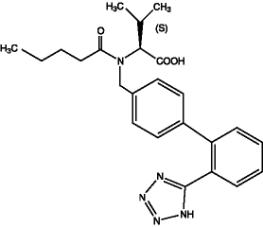
Valsartan is a white to practically white fine powder. It is soluble in ethanol and methanol and slightly soluble in water.
Hydrochlorothiazide, USP is a white, or practically white, practically odorless, crystalline powder. It is slightly soluble in water; freely soluble in sodium hydroxide solution, in n-butylamine, and in dimethylformamide; sparingly soluble in methanol; and insoluble in ether, in chloroform, and in dilute mineral acids. Hydrochlorothiazide is chemically described as 6-chloro-3,4-dihydro-2H-1,2,4-benzothiadiazine-7-sulfonamide 1,1-dioxide.
Hydrochlorothiazide is a thiazide diuretic. Its empirical formula is C7H8ClN3O4S2, its molecular weight is 297.73, and its structural formula is:
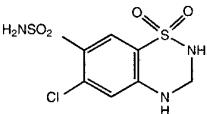
Diovan HCT tablets are formulated for oral administration to contain valsartan and hydrochlorothiazide, USP 80/12.5 mg, 160/12.5 mg, 160/25 mg, 320/12.5 mg, and 320/25 mg. The inactive ingredients of the tablets are colloidal silicon dioxide, crospovidone, hydroxypropyl methylcellulose, iron oxides, magnesium stearate, microcrystalline cellulose, polyethylene glycol, talc, and titanium dioxide.
Mechanism of Action
Angiotensin II is formed from angiotensin I in a reaction catalyzed by angiotensin-converting enzyme (ACE, kininase II). Angiotensin II is the principal pressor agent of the renin-angiotensin system, with effects that include vasoconstriction, stimulation of synthesis and release of aldosterone, cardiac stimulation, and renal reabsorption of sodium. Valsartan blocks the vasoconstrictor and aldosterone-secreting effects of angiotensin II by selectively blocking the binding of angiotensin II to the AT1 receptor in many tissues, such as vascular smooth muscle and the adrenal gland. Its action is therefore independent of the pathways for angiotensin II synthesis.
There is also an AT2 receptor found in many tissues, but AT2 is not known to be associated with cardiovascular homeostasis. Valsartan has much greater affinity (about 20,000-fold) for the AT1 receptor than for the AT2 receptor. The primary metabolite of valsartan is essentially inactive with an affinity for the AT1 receptor about one 200th that of valsartan itself.
Blockade of the renin-angiotensin system with ACE inhibitors, which inhibit the biosynthesis of angiotensin II from angiotensin I, is widely used in the treatment of hypertension. ACE inhibitors also inhibit the degradation of bradykinin, a reaction also catalyzed by ACE. Because valsartan does not inhibit ACE (kininase II), it does not affect the response to bradykinin. Whether this difference has clinical relevance is not yet known. Valsartan does not bind to or block other hormone receptors or ion channels known to be important in cardiovascular regulation.
Blockade of the angiotensin II receptor inhibits the negative regulatory feedback of angiotensin II on renin secretion, but the resulting increased plasma renin activity and angiotensin II circulating levels do not overcome the effect of valsartan on blood pressure.
Hydrochlorothiazide is a thiazide diuretic. Thiazides affect the renal tubular mechanisms of electrolyte reabsorption, directly increasing excretion of sodium and chloride in approximately equivalent amounts. Indirectly, the diuretic action of hydrochlorothiazide reduces plasma volume, with consequent increases in plasma renin activity, increases in aldosterone secretion, increases in urinary potassium loss, and decreases in serum potassium. The renin-aldosterone link is mediated by angiotensin II, so coadministration of an angiotensin II receptor antagonist tends to reverse the potassium loss associated with these diuretics.
The mechanism of the antihypertensive effect of thiazides is unknown.
What is the most important information I should know about Diovan HCT?
Diovan HCT can cause harm or death to an unborn baby. Talk to your doctor about other ways to lower your blood pressure if you plan to become pregnant. If you get pregnant while taking Diovan HCT, tell your doctor right away.
Who should not take Diovan HCT?
Do not take Diovan HCT if you:
- are allergic to any of the ingredients in Diovan HCT. See the end of this leaflet for a complete list of ingredients in Diovan HCT.
- make less urine due to kidney problems.
- are allergic to medicines that contain sulfonamides.
What should I tell my healthcare provider before taking Diovan HCT?
Tell your doctor about all your medical conditions including if you:
- are pregnant or plan to become pregnant. See “What is the most important information I should know about Diovan HCT?”
- are breastfeeding. Diovan HCT passes into breast milk. It is not known if Diovan HCT effects your breastfed baby or milk production. Do not breastfeed while you are taking Diovan HCT.
- have liver problems
- have kidney problems
- have or had gallstones
- have Lupus
- have low levels of potassium (with or without symptoms such as muscle weakness, muscle spasms, abnormal heart rhythm) or magnesium in your blood
- have high levels of calcium in your blood (with or without symptoms such as nausea, vomiting, constipation, stomach pain, frequent urination, thirst, muscle weakness and twitching)
- have high levels of uric acid in the blood.
- have ever had a reaction called angioedema, to another blood pressure medication. Angioedema causes swelling of the face, lips, tongue, throat and may cause difficulty breathing
Tell your doctor about all the medicines you take including prescription and nonprescription medicines, vitamins and herbal supplements. Some of your other medicines and Diovan HCT could affect each other, causing serious side effects. Especially, tell your doctor if you take:
- other medicines for high blood pressure or a heart problem
- water pills (diuretics)
- potassium supplements. Your doctor may check the amount of potassium in your blood periodically.
- a salt substitute. Your doctor may check the amount of potassium in your blood periodically.
- antidiabetic medicines including insulin
- narcotic pain medicines
- sleeping pills
- lithium, a medicine used in some types of depression (Eskalith, Lithobid, Lithium Carbonate, Lithium Citrate)
- aspirin or other medicines called non-steroidal anti-inflammatory drugs (NSAIDs), like ibuprofen or naproxen
- digoxin or other digitalis glycosides (a heart medicine)
- muscle relaxants (medicines used during operations)
- certain cancer medicines, like cyclophosphamide or methotrexate
- certain antibiotics (rifamycin group), a drug used to protect against transplant rejection (cyclosporine) or an antiretroviral drug used to treat HIV/AIDS infection (ritonavir). These drugs may increase the effect of valsartan.
Ask your doctor if you are not sure if you are taking one of these medicines.
Know the medicines you take. Keep a list of your medicines with you to show to your doctor and pharmacist when a new medicine is prescribed. Talk to your doctor or pharmacist before you start taking any new medicine. Your doctor or pharmacist will know what medicines are safe to take together.
How should I take Diovan HCT?
- Take Diovan HCT exactly as prescribed by your doctor. Your doctor may change your dose if needed.
- Take Diovan HCT once each day.
- Diovan HCT can be taken with or without food.
- If you miss a dose, take it as soon as you remember. If it is close to your next dose, do not take the missed dose. Just take the next dose at your regular time.
- If you take too much Diovan HCT, call your doctor or Poison Control Center, or go to the nearest hospital emergency room.
What should I avoid while taking Diovan HCT?
You should not take Diovan HCT during pregnancy. See “What is the most important information I should know about Diovan HCT?”
What are the possible side effects of Diovan HCT?
Diovan HCT may cause serious side effects including:
- Harm to an unborn baby causing injury and even death. See “What is the most important information I should know about Diovan HCT?”
- Low blood pressure (hypotension). Low blood pressure is most likely to happen if you:
- take water pills
- are on a low-salt diet
- get dialysis treatments
- have heart problems
- get sick with vomiting or diarrhea
- drink alcohol
Lie down if you feel faint or dizzy. Call your doctor right away.
- Allergic reactions. People with and without allergy problems or asthma who take Diovan HCT may get allergic reactions.
- Worsening of Lupus. Hydrochlorothiazide, one of the medicines in Diovan HCT may cause Lupus to become active or worse.
- Fluid and electrolyte (salt) problems. Tell your doctor about any of the following signs and symptoms of fluid and electrolyte problems:
- dry mouth
- thirst
- lack of energy (lethargic)
- weakness
- drowsiness
- restlessness
- confusion
- seizures
- muscle pain or cramps
- muscle fatigue
- very low urine output
- fast heartbeat
- nausea and vomiting
- Kidney problems. Kidney problems may become worse in people that already have kidney disease. Some people will have changes on blood tests for kidney function and may need a lower dose of Diovan HCT. Call your doctor if you get swelling in your feet, ankles, or hands, or unexplained weight gain. If you have heart failure, your doctor should check your kidney function before prescribing Diovan HCT.
- Skin rash. Call your doctor right away if you have an unusual skin rash.
- Eye problems. One of the medicines in Diovan HCT can cause eye problems that may lead to vision loss. Symptoms of eye problems can happen within hours to weeks of starting Diovan HCT. Tell your doctor right away if you have:
- decrease in vision
- eye pain
Other side effects were generally mild and brief. They generally have not caused patients to stop taking Diovan HCT.
Tell your doctor if you have any side effect that bothers you or that does not go away.
These are not all the possible side effects of Diovan HCT. For a complete list, ask your doctor or pharmacist.
Call your doctor for medical advice about side effects. You may report side effects to FDA at 1-800-FDA-1088.
General information about the safe and effective use of Diovan HCT
Medicines are sometimes prescribed for conditions that are not mentioned in patient information leaflets. Do not use Diovan HCT for a condition for which it was not prescribed. Do not give Diovan HCT to other people, even if they have the same symptoms you have. It may harm them.
This leaflet summarizes the most important information about Diovan HCT. If you would like more information, talk with your doctor. You can ask your doctor or pharmacist for information about Diovan HCT that is written for health professionals. For more information about Diovan HCT, go to www.DIOVAN.com or call 1-866-404-6359.
How should I store Diovan HCT?
- Store Diovan HCT tablets at room temperature between 59oF to 86oF (15oC to 30oC).
- Keep Diovan HCT in a closed container in a dry place.
Keep Diovan HCT and all medicines out of the reach of children.
What are the ingredients in Diovan HCT?
Active ingredients: Valsartan and hydrochlorothiazide
Inactive ingredients: colloidal silicon dioxide, crospovidone, hydroxypropyl methylcellulose, iron oxides, magnesium stearate, microcrystalline cellulose, polyethylene glycol, talc, and titanium dioxide.
Label
PRINCIPAL DISPLAY PANEL
- NDC 0078-0383-34
- Diovan HCT®
- valsartan and hydrochlorothiazide, USP
- 160 mg/25 mg
- 90 tablets
- Rx only
- NOVARTIS
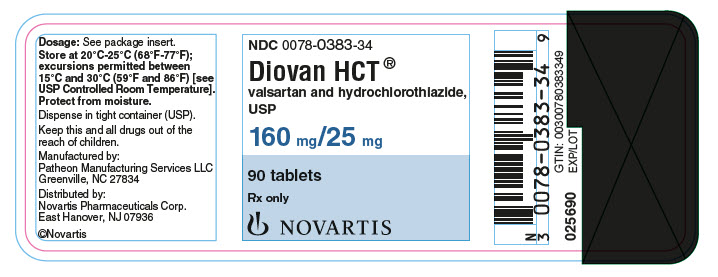
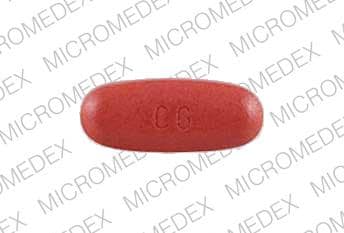
PRINCIPAL DISPLAY PANEL
- NDC 0078-0471-34
- Diovan HCT®
- valsartan and hydrochlorothiazide, USP
- 320 mg/12.5 mg
- 90 tablets
- Rx only
- NOVARTIS
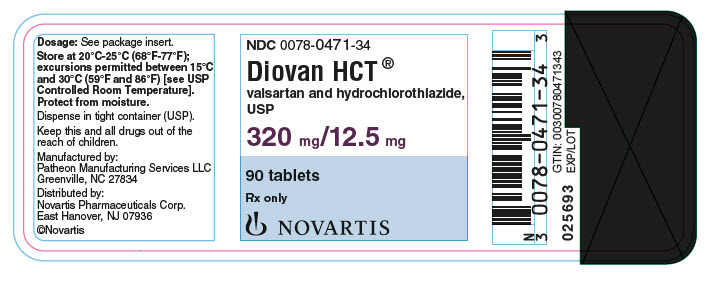
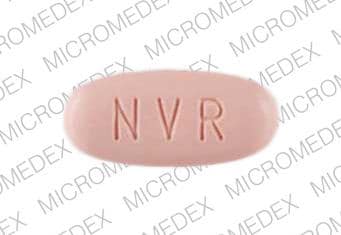
PRINCIPAL DISPLAY PANEL
- NDC 0078-0314-34
- Diovan HCT®
- valsartan and hydrochlorothiazide, USP
- 80 mg/12.5 mg
- 90 tablets
- Rx only
- NOVARTIS
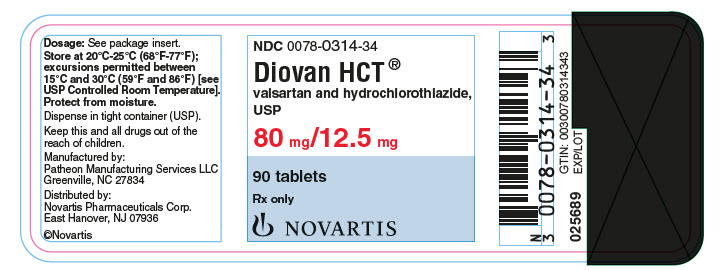
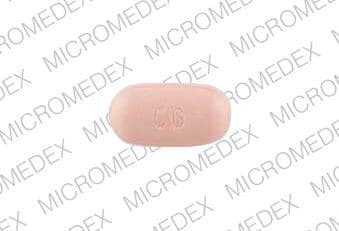
SRC: NLM .
